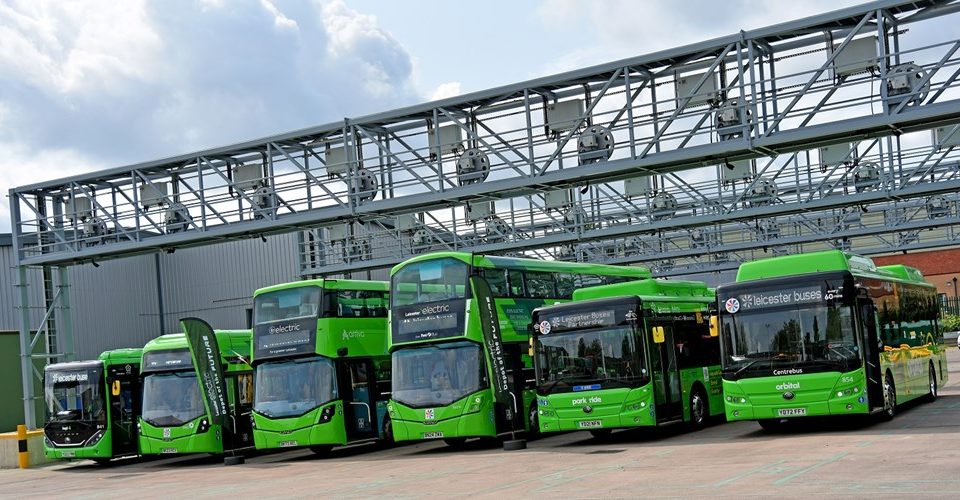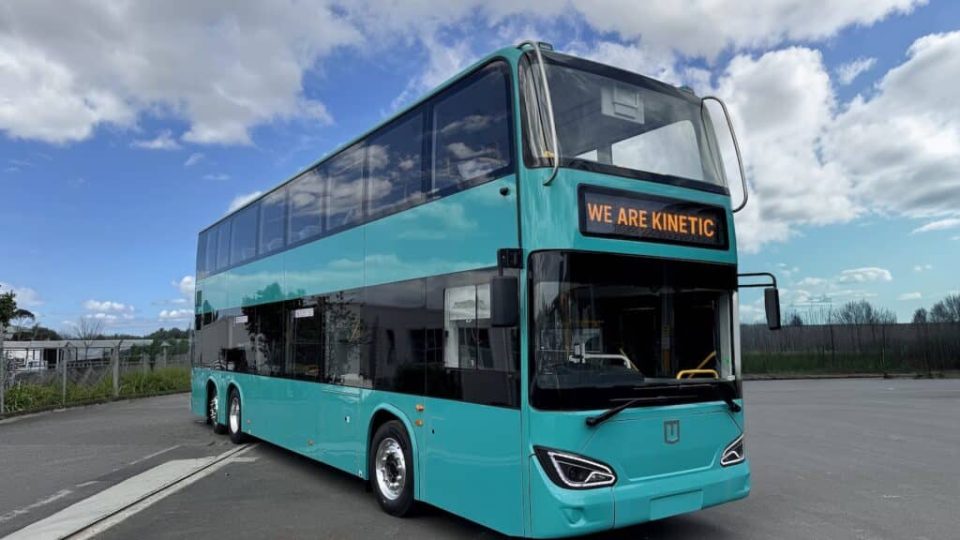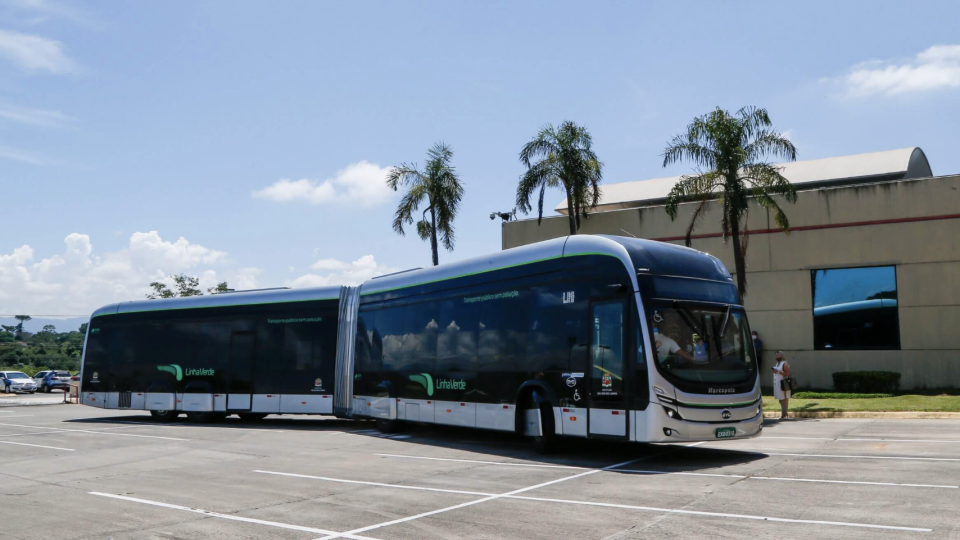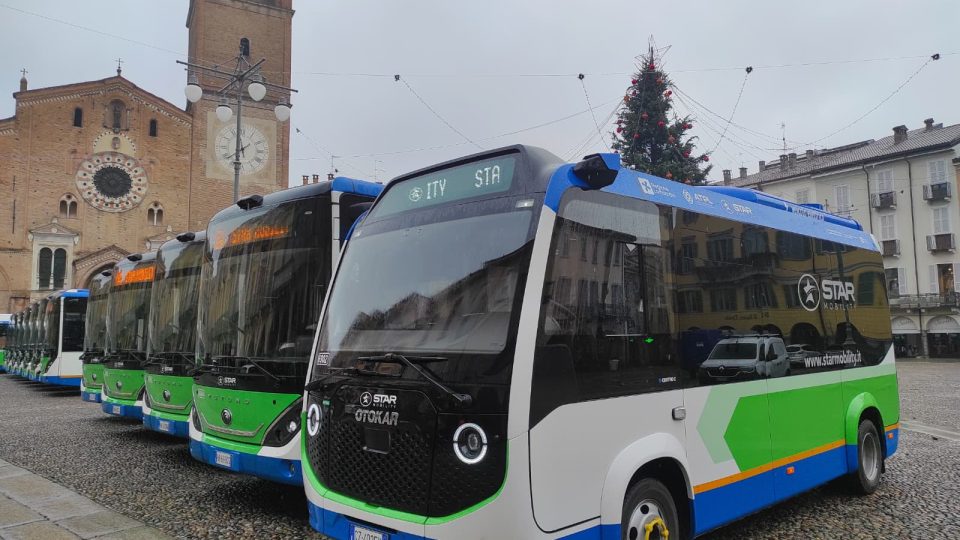45 transit agencies in the US are going to use FTA grants to deploy Gillig low and zero emission buses
Gillig announced that 45 transit agencies have decided to utilize their FTA grants to buy the manufacturer’s low and zero emission buses. These awards were made possible through Federal Transit Administration (FTA) ‘s annual Buses and Bus Facilities and Low- and No-Emission (Low-No) Vehicle programs. A few days ago New Flyer stated that it has […]
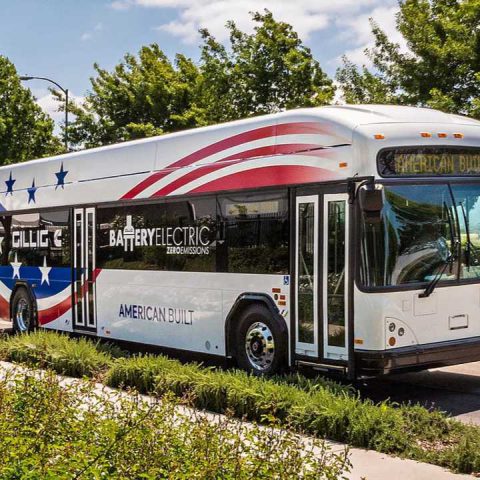
Gillig announced that 45 transit agencies have decided to utilize their FTA grants to buy the manufacturer’s low and zero emission buses. These awards were made possible through Federal Transit Administration (FTA) ‘s annual Buses and Bus Facilities and Low- and No-Emission (Low-No) Vehicle programs. A few days ago New Flyer stated that it has been named partner of choice by a total of 38 transit agencies.
Nearly half of Gillig’s partnerships are utilizing Low-No funding to purchase Gillig’s zero-emissions Battery Electric Bus (specifically, the Gen 3 launched in early 2022). It features Akasol AKASystem 9 AKM 150 CYC battery system for the following available capacity configurations: 490 kWh, 588 kWh and 686 kWh,
An historical momento for e-buses in the US
With a $1.66 billion available, FTA’s competitive grant process selected 150 projects across 48 states and territories. Out of the 115 projects that include the acquisition of new vehicles, 1,100 new zero-emissions vehicles will join America’s transit systems, nearly doubling the current no-emission transit buses in-service, Gillig says. This historic level of funding was made possible by the 2021 Bipartisan Infrastructure Investment and Jobs Act, as well as through other Federal investments aimed at increasing access to public transit and decreasing overall carbon emissions.
Fitting the trends of transit agencies shifting to cleaner, lower-emission technology, nearly half of Gillig’s partnerships are utilizing Low-No funding to purchase Gillig‘s zero-emissions Battery Electric Bus.
Focus on Gillig Gen 3 Electric Bus
This third-generation iteration of the vehicle, dubbed the Gen3 and launched in early 2022, has a battery capacity of up to 686 kWh, as well as increased compatibility with depot and opportunity modular charging solutions, including plug-in, overhead conductive, and wireless inductive charging options, manufacturer says.
The Gen 3 Battery Electric bus is built on the Low-Floor platform shared across all Gillig’s bus products, ensuring a high degree of operator and mechanic familiarity and part commonality. But with the all-new battery capacity, this next generation offers a 32% increase from previous models, ensuring customers do not have ‘range anxiety’ as they work to reduce their fleet’s emissions.
The advancement in capacity and range is a result of Gillig’s new partnership with the modular lithium-ion battery manufacturer Akasol.
“We are honored to be the trusted partner for each of these awarded agencies, and we look forward to celebrating the impact these new buses will have in their communities,” said Bill Fay, Gillig’s Vice President of Sales. “Gillig buses have long set the standard of quality and reliability for American public transit. This historic funding will allow Gillig and our partners throughout America to shape a greener, cleaner future of our nation’s public transit systems.”
Nearly half of Gillig’s partnerships are utilizing Low-No funding to purchase Gillig’s zero-emissions Battery Electric Bus (specifically, the Gen 3 launched in early 2022). It features Akasol AKASystem 9 AKM 150 CYC battery system for the following available capacity configurations: 490 kWh, 588 kWh and 686 kWh,
An historical momento for e-buses in the US
With a $1.66 billion available, FTA’s competitive grant process selected 150 projects across 48 states and territories. Out of the 115 projects that include the acquisition of new vehicles, 1,100 new zero-emissions vehicles will join America’s transit systems, nearly doubling the current no-emission transit buses in-service, Gillig says. This historic level of funding was made possible by the 2021 Bipartisan Infrastructure Investment and Jobs Act, as well as through other Federal investments aimed at increasing access to public transit and decreasing overall carbon emissions.
Fitting the trends of transit agencies shifting to cleaner, lower-emission technology, nearly half of Gillig’s partnerships are utilizing Low-No funding to purchase Gillig‘s zero-emissions Battery Electric Bus.
Focus on Gillig Gen 3 Electric Bus
This third-generation iteration of the vehicle, dubbed the Gen3 and launched in early 2022, has a battery capacity of up to 686 kWh, as well as increased compatibility with depot and opportunity modular charging solutions, including plug-in, overhead conductive, and wireless inductive charging options, manufacturer says.
The Gen 3 Battery Electric bus is built on the Low-Floor platform shared across all Gillig’s bus products, ensuring a high degree of operator and mechanic familiarity and part commonality. But with the all-new battery capacity, this next generation offers a 32% increase from previous models, ensuring customers do not have ‘range anxiety’ as they work to reduce their fleet’s emissions.
The advancement in capacity and range is a result of Gillig’s new partnership with the modular lithium-ion battery manufacturer Akasol.
“We are honored to be the trusted partner for each of these awarded agencies, and we look forward to celebrating the impact these new buses will have in their communities,” said Bill Fay, Gillig’s Vice President of Sales. “Gillig buses have long set the standard of quality and reliability for American public transit. This historic funding will allow Gillig and our partners throughout America to shape a greener, cleaner future of our nation’s public transit systems.”
Gillig announced that 45 transit agencies have decided to utilize their FTA grants to buy the manufacturer’s low and zero emission buses. These awards were made possible through Federal Transit Administration (FTA) ‘s annual Buses and Bus Facilities and Low- and No-Emission (Low-No) Vehicle programs. A few days ago New Flyer stated that it has been named partner of choice by a total of 38 transit agencies.
Nearly half of Gillig’s partnerships are utilizing Low-No funding to purchase Gillig’s zero-emissions Battery Electric Bus (specifically, the Gen 3 launched in early 2022). It features Akasol AKASystem 9 AKM 150 CYC battery system for the following available capacity configurations: 490 kWh, 588 kWh and 686 kWh,
An historical momento for e-buses in the US
With a $1.66 billion available, FTA’s competitive grant process selected 150 projects across 48 states and territories. Out of the 115 projects that include the acquisition of new vehicles, 1,100 new zero-emissions vehicles will join America’s transit systems, nearly doubling the current no-emission transit buses in-service, Gillig says. This historic level of funding was made possible by the 2021 Bipartisan Infrastructure Investment and Jobs Act, as well as through other Federal investments aimed at increasing access to public transit and decreasing overall carbon emissions.
Fitting the trends of transit agencies shifting to cleaner, lower-emission technology, nearly half of Gillig’s partnerships are utilizing Low-No funding to purchase Gillig‘s zero-emissions Battery Electric Bus.
Focus on Gillig Gen 3 Electric Bus
This third-generation iteration of the vehicle, dubbed the Gen3 and launched in early 2022, has a battery capacity of up to 686 kWh, as well as increased compatibility with depot and opportunity modular charging solutions, including plug-in, overhead conductive, and wireless inductive charging options, manufacturer says.
The Gen 3 Battery Electric bus is built on the Low-Floor platform shared across all Gillig’s bus products, ensuring a high degree of operator and mechanic familiarity and part commonality. But with the all-new battery capacity, this next generation offers a 32% increase from previous models, ensuring customers do not have ‘range anxiety’ as they work to reduce their fleet’s emissions.
The advancement in capacity and range is a result of Gillig’s new partnership with the modular lithium-ion battery manufacturer Akasol.
“We are honored to be the trusted partner for each of these awarded agencies, and we look forward to celebrating the impact these new buses will have in their communities,” said Bill Fay, Gillig’s Vice President of Sales. “Gillig buses have long set the standard of quality and reliability for American public transit. This historic funding will allow Gillig and our partners throughout America to shape a greener, cleaner future of our nation’s public transit systems.”

